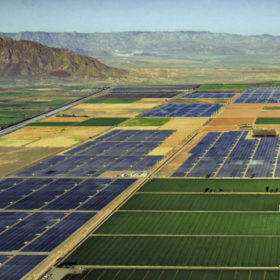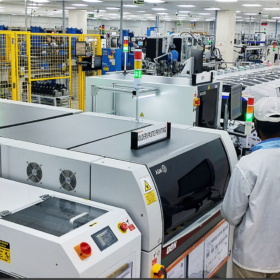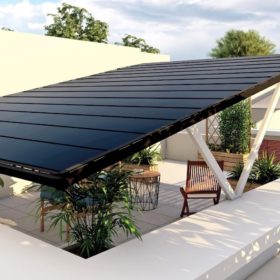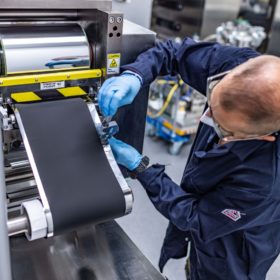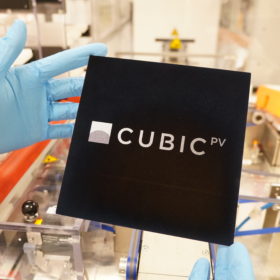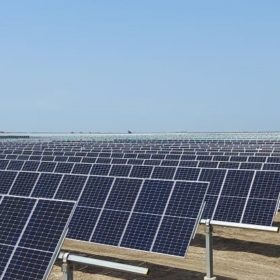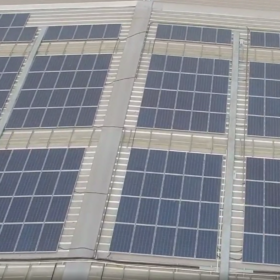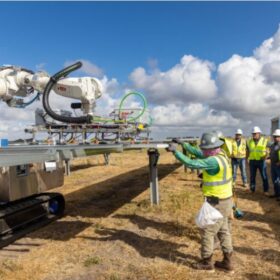US to extend Investment Tax Credit for solar at 30% to 2032
As written in the Inflation Reduction Act of 2022, the tax credit will begin at 30% and step down to 26% in 2033 and 22% in 2034.
Enphase surpasses 5 million shipments of microinverters produced in India
USA-headquartered Enphase manufactures microinverters in India from Finnish company Salcomp’s plant in Chennai.
SunEdison brings Arka’s integrated solar roofs to Indian homes
SunEdison has partnered with Silicon Valley based startup Arka Energy to provide the Arka collection of solar roof and gazebo solutions in India. The collection is available in one hundred cities across the nation.
Israel, USA, UAE to support 300 MW wind-solar-storage project in Gujarat
The United States and Israel have the opportunity to provide clean energy solutions for the 300 MW wind-solar project complemented by a battery energy storage system. United Arab Emirates-based companies will explore participation as knowledge and investment partner.
Lithium-ion fire fears spark recall of 433,000 solar LED umbrellas in US, Canada
The US Consumer Product Safety Commission and Health Canada have issued a joint recall of patio umbrellas due to fires caused by the overheating of lithium-ion batteries.
US startup unveils non-flammable batteries for EVs, storage
Alsym will produce its new batteries – made of readily available materials, without lithium or cobalt – for electric vehicles, stationary storage, and marine applications.
Microsoft to purchase power from a 100 MW Amplus Solar project in India
On the road to becoming carbon negative, Microsoft increases the amount of zero-carbon electricity it’s procuring through long-term contracts.
The long read: Tapping the solar data trail
US-based energy tech company Enphase Energy appears to have overcome the adversity it faced in the mid-2010s, when it was grappling with competition from string inverters and slower growth in the residential segment. Now that rooftop solar is hot again, Enphase’s co-founder and chief product officer, Raghu Belur, sat down with Tristan Rayner to discuss the microinverter pioneer’s approach to quality in a time of rapid change and the growing utility of connected devices.
CubicPV, Waaree sign five-year deal for annual solar cell supply of 1 GW
USA-headquartered CubicPV will supply, per annum, 1 GW of Direct Wafer silicon solar cells to Indian manufacturer Waaree Energies under a five-year contract. The cells will be supplied from its upcoming 2 GW factory in India.
BlackRock, Mubadala to invest in Tata Power Renewables
Tata Power has raised INR 4,000 crore (US$ 525 million) from a consortium led by the world’s largest fund manager BlackRock Real Assets and Abu Dhabi sovereign wealth fund Mubadala Investment Company to fund the growth of its renewable energy business.
